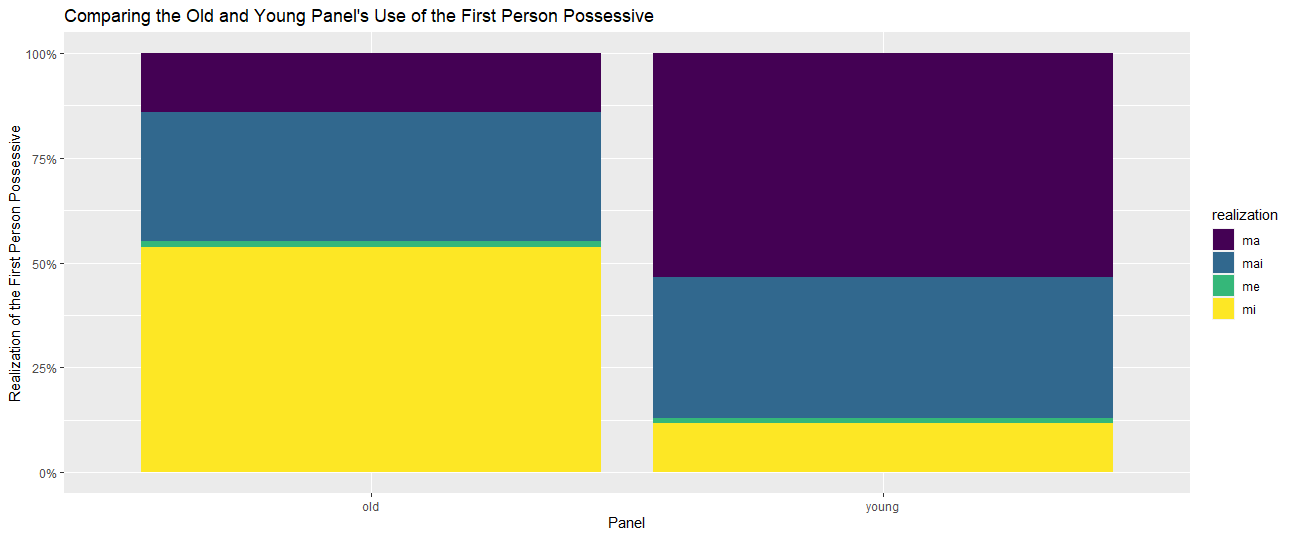Does our age influence the way we speak? The short answer is: yes! As we age, we are influenced by certain linguistic pressures which means that we try to avoid forms that people associate with negative stereotypes.
Let me introduce you to Fred. He comes from a working-class background and is not only the first one in his family to go to grammar school but also the first one to go to university to pursue a career in teaching. He realizes that he needs to fit in with his middle-class peers and adjusts his speech accordingly towards the “standard norm” to earn his colleagues’ and pupils’ respect.
The Variables: Hyper -s and First-person Possessive
In my MA thesis I analyze two variables which are typical for the North-East of England. The first variable is the hyper -s: some speakers add an -s not only to verbs in the third person (e.g. he/she/it goes) but also to verbs in other grammatical persons (e.g. I says, we wants).
The second variable is the pronunciation of the first-person possessive “my”: the typically Northern pronunciation is [mi], but speakers will also use a shortened [ma] or [me] instead of the standard pronunciation [mai].
I investigate in which contexts speakers use the more vernacular variants – or if they avoid them altogether. Overall, the pronunciation of [mi] as well as the hyper -s seem to be receding in the speech community. I want to know how the speakers contribute to this development: do they follow along or do they behave differently?
The Speakers: Two Panels from Newcastle
I look at two sets of people form Newcastle who were interviewed at different points in their lives. The “old panel” was interviewed in 1971, 2013 and 2019 at the start of their careers and once they had retired. The “young panel” was recorded in 2007, 2014 and 2019. In the first interview, they were studying at Newcastle University and in the later interviews, they had entered the professional sphere.
The Findings: Comparing the Panel to the Community
My findings show that the speakers only use the hyper -s in certain contexts. One example are so-called existential constructions. The majority of speakers say things such as “there IS cars” instead of “there ARE cars”. It seems as if it is becoming similar to “es gibt” and “il y a”-meaning that it stays “there is” no matter if the following noun is plural or not. These existentials are also used by speakers who tend to speak “posh” or very Standard British English, which could imply that this construction is not socially stigmatized any more. This has also been found in previous studies.
As for the pronunciation of the first-person possessive, the typically Northern pronunciation is becoming increasingly rare and is being replaced by the shortened variant [ma], just as previous studies have found. Even though this realization is vernacular, it is not typical for the North but occurs in several varieties of English.
Click on the picture to see the plot!

This bar chart shows how the distribution of the different variants changes between the different time points. The Y-axis displays the proportions of the different realizations [ma], [mai], [me] and [mi]. The X-axis compares the young panel with the old panel. The old panel uses [mi] the most often and [ma] quite rarely. The young panel uses [ma] the most and [mi] only in some cases. This indicates that there is an overall trend: Since young people use [ma] more frequently than older people, it seems as if [ma] is a new variant which is replacing the traditionally Northern realization [mi].



